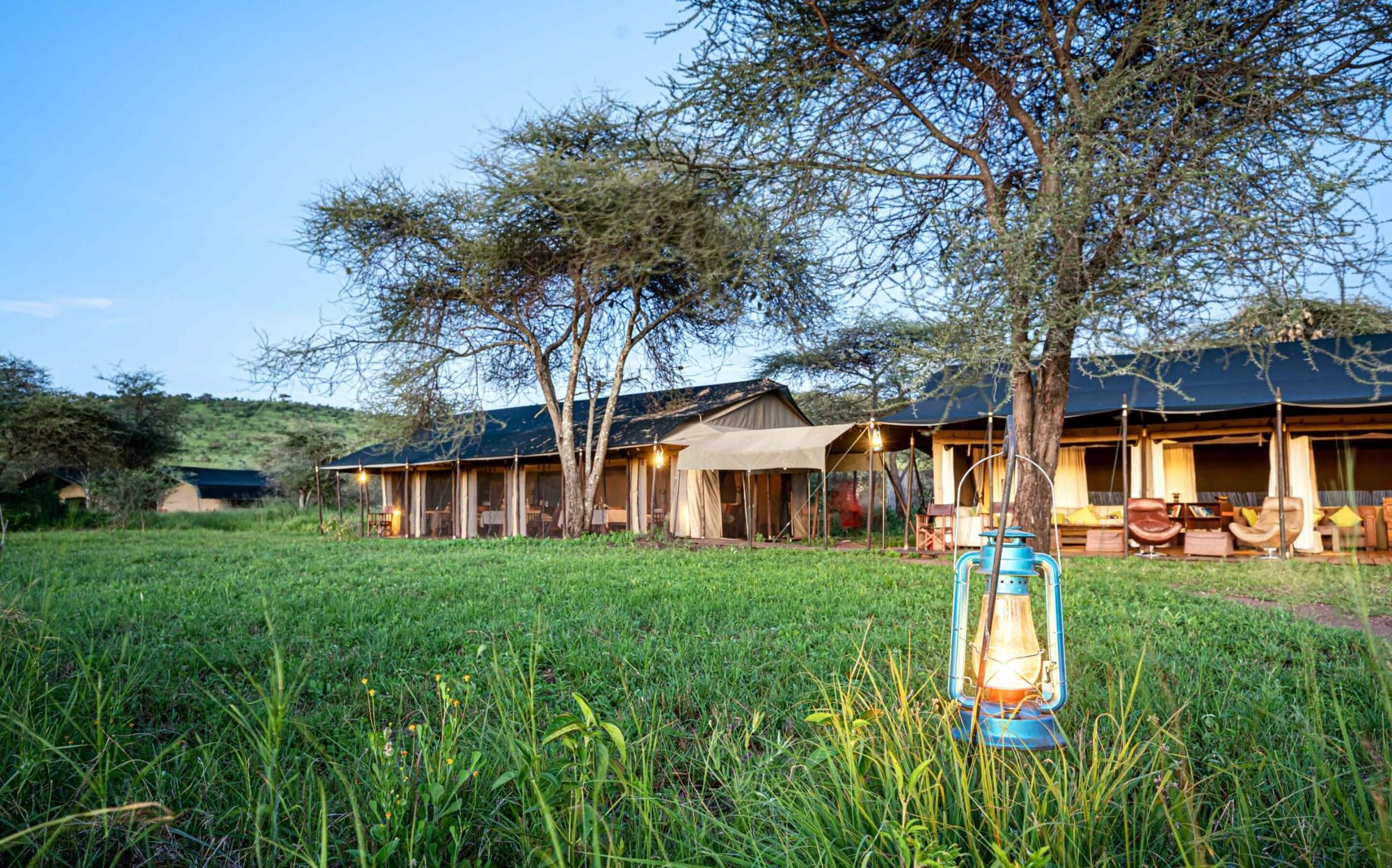
It doesn't take much to return you to real life, and leave so much behind that we don't really need. Here's one way to do it and leave a lasting legacy along the way.
Dear Reader: I am doing a series on four camps that I visited in the Serengeti, Ngorongoro Crater and Tarangire National Park here in Tanzania. They are owned by Lemala. I do not work for them. I am an enthusiastic fan of what they are doing and how they are changing tourism in Africa. All photos credited to Lemala are used with permission.
The flashlight moved down the path towards my tent, number six, in the line of luxury tents that stretched away from the central dining room and bar. Suddenly, just off to my right, in the deep dark of pre-dawn, the edge of the light caught a massive shape.
A bull elephant, mere feet away from my tent, had been exploring. Now he was turning his great body towards me, his sweeping ivory tusks glinting in the flashlight's revealing gaze. Slowly, he moved between tents number five and six.
I was peering out from six, my eyes wide in astonishment.
He was VERY close.
No way to photograph this. You simply stand in stunned silence, watching this magnificent creature move gracefully past you into the dark, his silhouette outlined by the lamps in front of our tents and the Maasai guide's bright lights.
That's one heck of a way to begin the day.
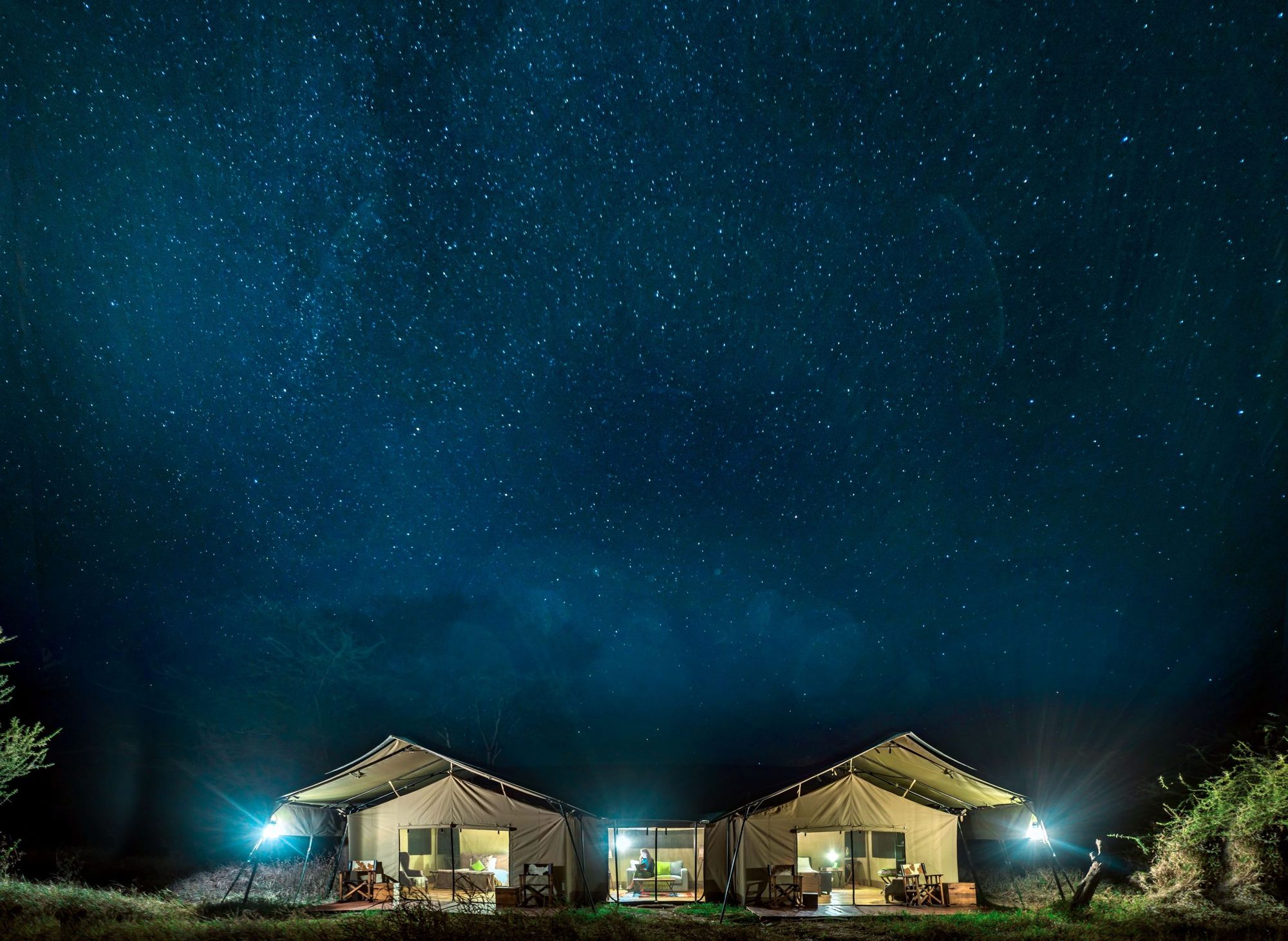
I am in the Serengeti. Out here, it's just another day. Swale, the Maasai warrior, was encouraging the elephant away from my tent, for they come here for the water tank near the toilet. You encourage bull elephants very gently.
The morning begins with a rush of birds, some distant and some close. Just outside the tent I could hear plenty of movement. In this part of the world that could mean anything, so it’s not a good idea to go exploring without someone who knows their way around. One quick call on the walkie-talkie brings a Maasai warrior draped in their traditional plaid blanket heading down the dark path to escort you to breakfast.
As I waited for my Maasai escort, I heard zebras in the bush nearby, some of them quite close. I tentatively poked my head out again, my head lantern shining a weak light into the bushes. Nothing. But they’re there. My gorgeous luxury tent stayed zipped up until my Maasai escort walked me to breakfast in half an hour.
Meanwhile, I listened to The World, separated from me by the canvas. I heard a deep growl a bit further off. That's why you don't wander off. More than bugs can bite.
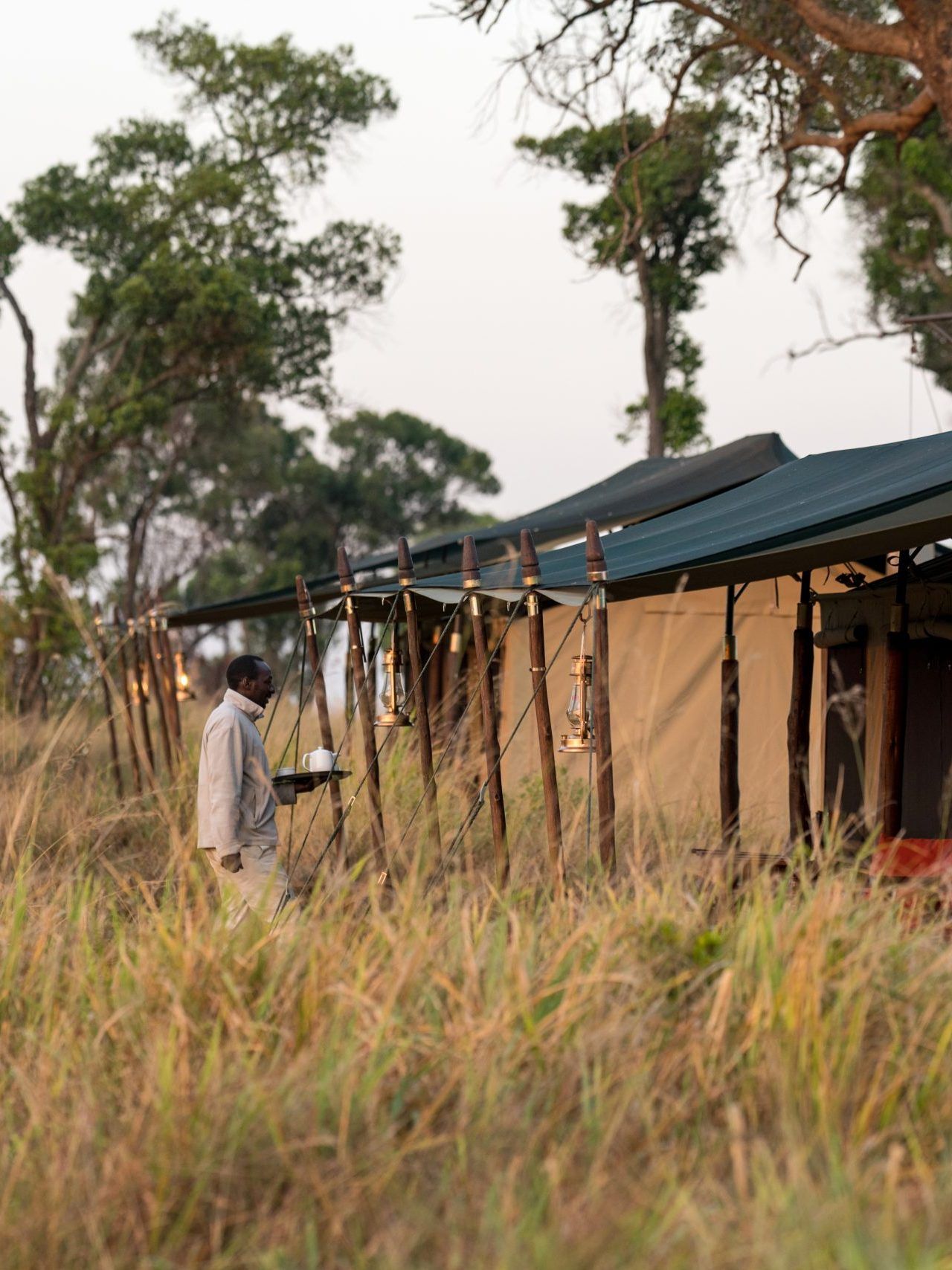
Welcome to the World.
At breakfast, the sun slowly touches the acacia trees to reveal the zebras grazing a few hundred yards away. I asked Ali, another Maasai warrior escort, to take me to see the elephants who were inspecting the camp. There were three bulls, two with the great long tusks which make them so prized. They grazed quietly as the pinking sun painted the clouds behind them.
But I'm ahead of my story. As Karen Blixen wrote of Denys Finch-Hatton in Out of Africa, Denys wouldn't have liked that. So let's go back to the day before, at the airport.
First, a little context to set the stage.
As an adventure traveler and journalist, I have spent the last twelve years in some of the world's most remote and remarkable places. I eschew sophisticated cities for the bush. I have a passionate love of these places and like many, am deeply troubled by the combined threats of climate change, loss of habitat, population growth and more.
Since coming to Africa the first time in 2000, I was hooked forever. Her future became entwined with mine. I have been to nine countries, and on many, many safaris. I've seen all kinds of tourist offerings.
In the ensuing 22 years, not only has Africa changed a great deal, African tourism has had to change to respond to the pressures I mentioned.
Sustainable tourism, tourism which respects the environment, digs deep taproots into the local community and economy, reduces its impact and works to give back isn't just a nice-to-have any more. It's an imperative.
A new cadre of conservation-savvy tourists is demanding a more environmentally-sound experience for their investment. They want to know that a percentage of their dollars is having a real impact on the people and the places they have flown so far to see and savor. I'm going to be reinforcing these themes throughout these articles for one primary purpose:
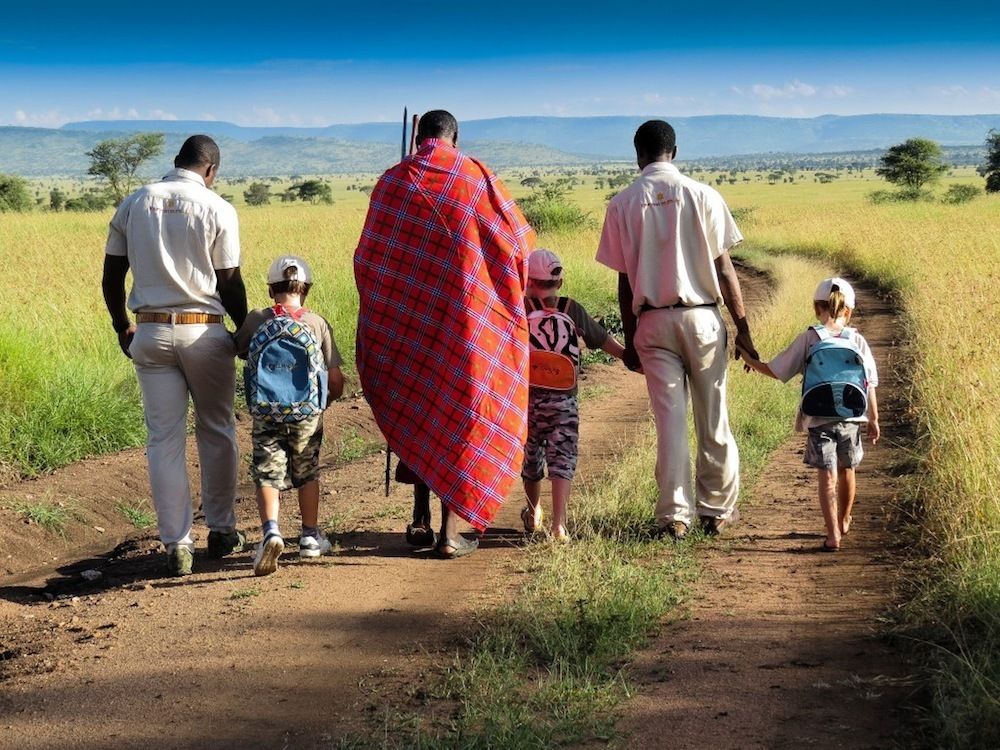
Your greater awareness of how your tourist dollars are spent can make a far greater impact than you might realize. Where you choose to travel and where you choose to stay can help leave a lasting legacy. That not only supports the people and villages surrounding these facilities, but also better ensures that your children's children will see an African landscape much like, or better than, what we have today.
I hope you're as excited about that as I am. To me, the idea that selecting a particular company means that your investment pays off in a lot more ways than lifetime memories is the bow on the gift of a safari to yourself and your family.
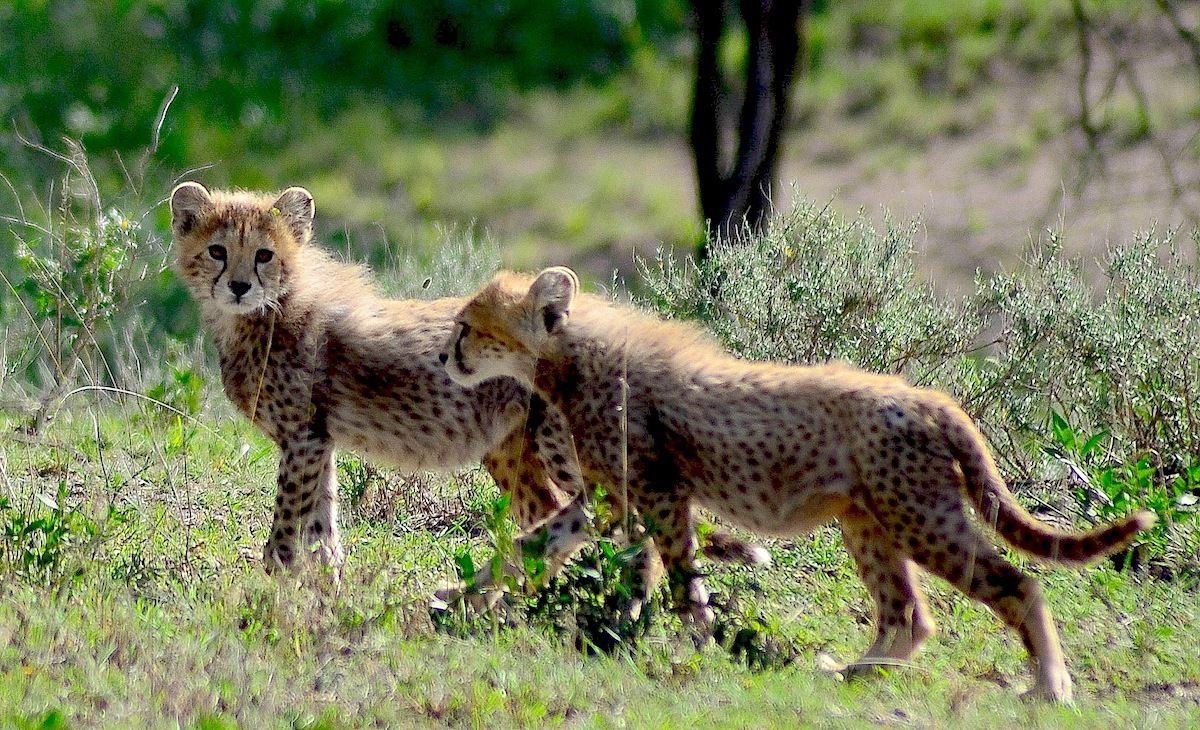
But first, here's what it feels like to be here.
I arrived in the Serengeti by puddle-jumper. This part of the Serengeti, called Seronera, is famed for nearly perfect animal viewing conditions almost any time of the year. The day was warm and sunny, full of fluffy cumulus clouds. Just as I walked into the tiny airport, I was greeted by a familiar face: Alladin (that’s the correct spelling for him), with wh
om I had spent a good bit of time last year with eTrip Africa.
He said, grinning broadly, Welcome to the World.
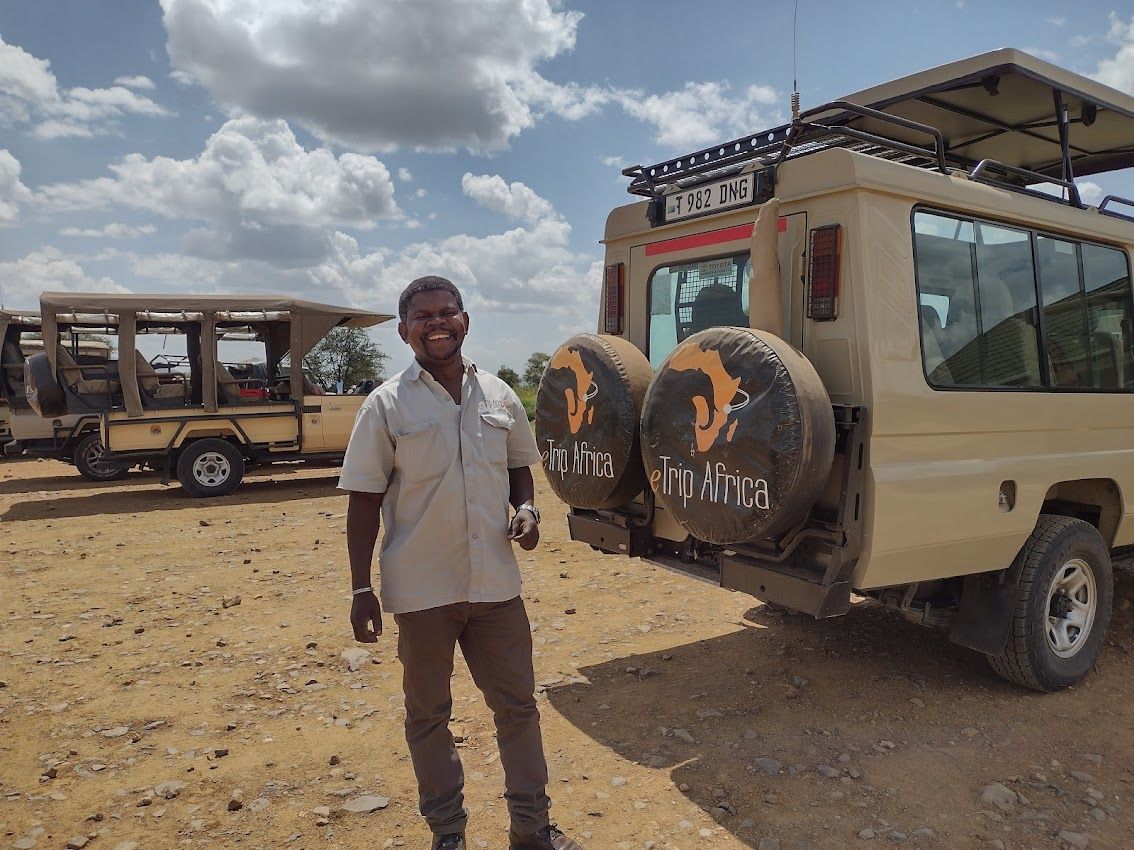
I was home. There really are no words.
As soon as we had secured the proper permits, Alladin and I were off to do a game drive. The best part of landing out here is that as soon as you touch down, you're probably looking at game. You have to have your camera ready the moment you reach the parking lot. That's why I want to share that part of the journey with you first, because when you land out here, be ready to be dazzled all day, all the time.
Almost immediately we started spotting zebra. A whole herd of them. Then, my eyes adjusted. Their clever stripes not only discourage biting flies, but they can also cause these animals to nearly disappear against the high grasses of this part of the world.
I was looking at thousands of zebra, along with even greater numbers of wildebeest. This time of year they're moving through the Serengeti in their great annual migration. Where we were driving, two -to five- zebra "dazzles" (the term for more than one) were standing quietly, their heads strategically placed over each others' backs and necks to ensure alert eyes in all directions.
I breathed in the dust, the bright African air. I was just overwhelmed.
Welcome to the World.
Alladin and I agreed to allow me time to settle in my room, get a quick bite and we'd head out around 3 pm. At that point the sun would be starting its leisurely arc towards the horizon, and all the animals of The World would be preparing for night. I wanted to be ready.
When we drove into the camp, I was immediately greeted by name by Juma, an exuberant man with a wonderful smile. Alladin and I were both offered cool, wet washcloths rolled up and handed to us with tongs. It's a greeting I'd get used to at Lemala.
As soon as I unloaded my backpack it was handed to another gentleman who walked me to my tent.
Tent 6 was a short walk away from the open central area. My "tent," if you could truly call it that, was a generous, sprawling setup with raised wood plank floors, a bucket shower, flush toilet (yes, out here!) and beautifully-appointed rooms full of amenities. I had a huge king bed and plenty of space to spread out. There’s a central seating area, and two more beds behind another zipped canvas curtain for two more family members or friends, and plenty of soft lighting.
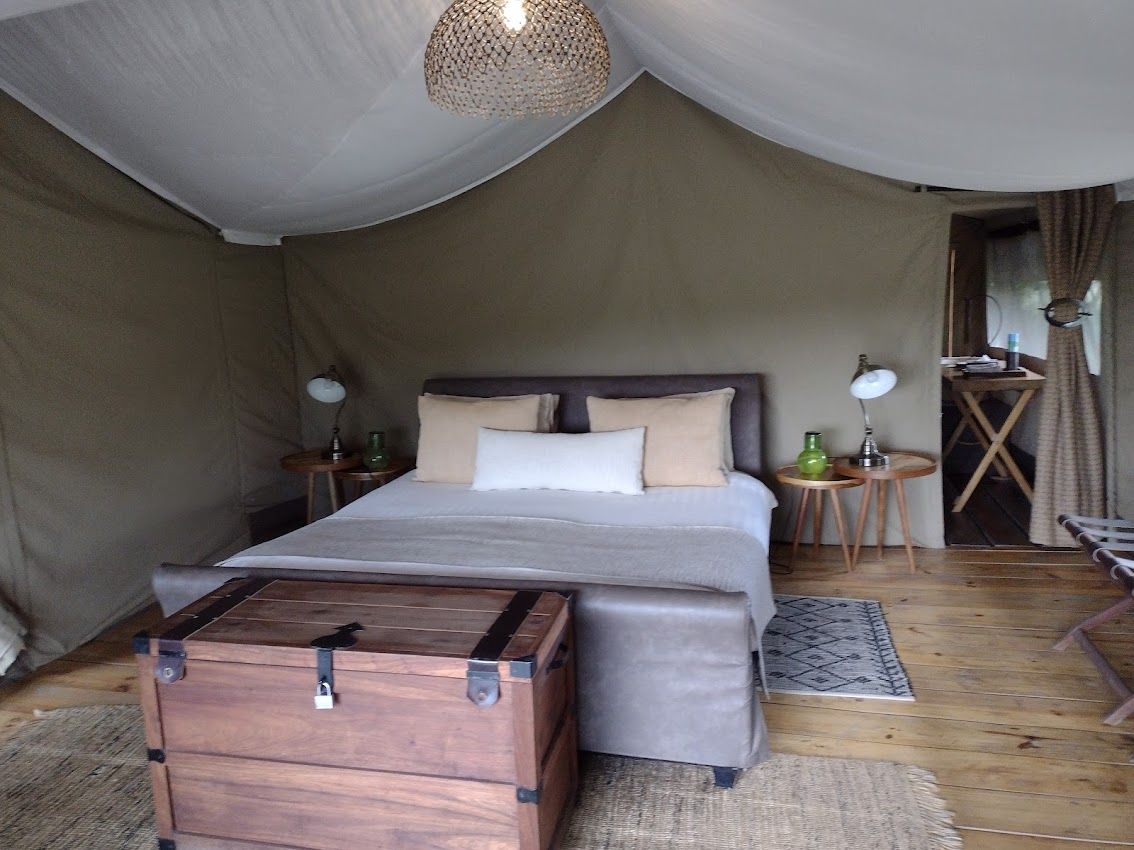
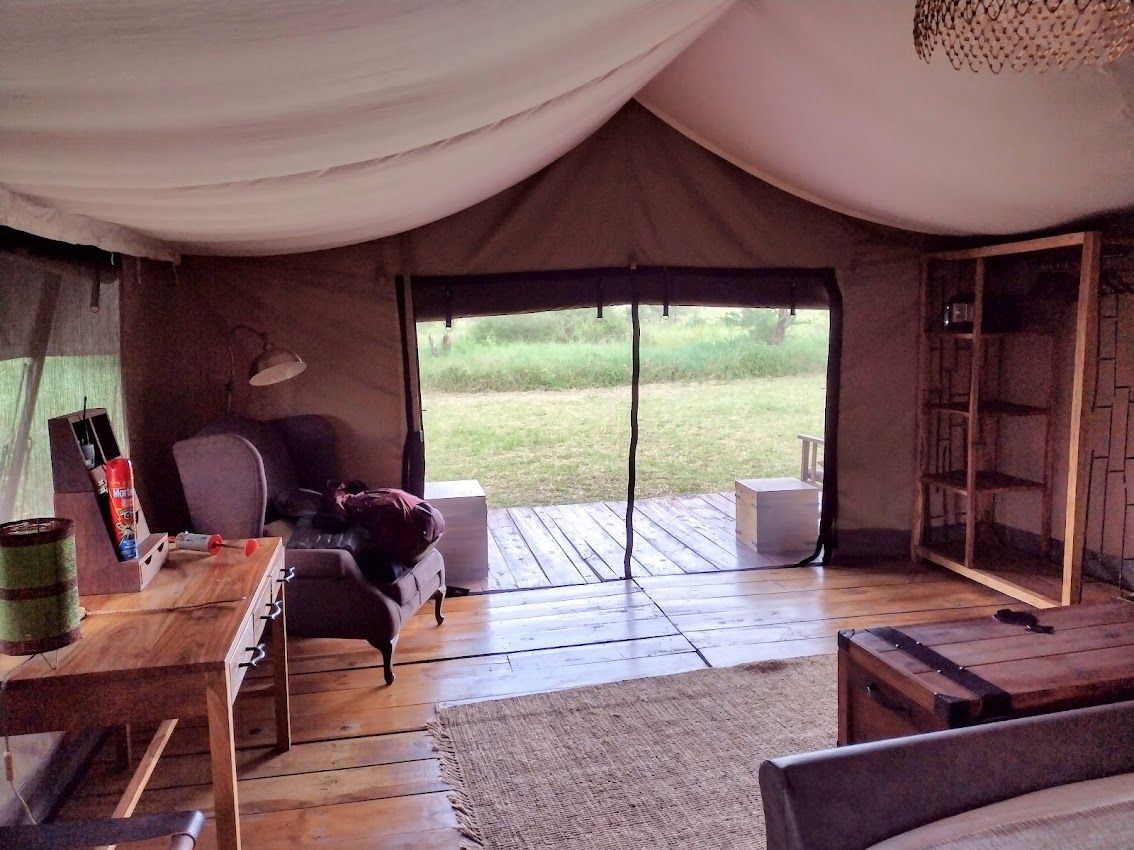
When I sleep in a tent on most of my adventures, suffice it to say I have room for a sleeping bag, the contents of my backpack and not much more. Here, well.
I quickly spread my things out, eager to get out into the bush with Alladin. Then I sent a few quick texts and emails via the central wifi and leapt into ETrip’s big safari vehicle.
You read that right. I had wifi access the entire time at each of the camps and lodges.
The central area features charging stations and wifi, as well as a bar. Solar energy provides that for you, so you never have to worry about a dead phone or camera battery. Or, in my case, a dead laptop.
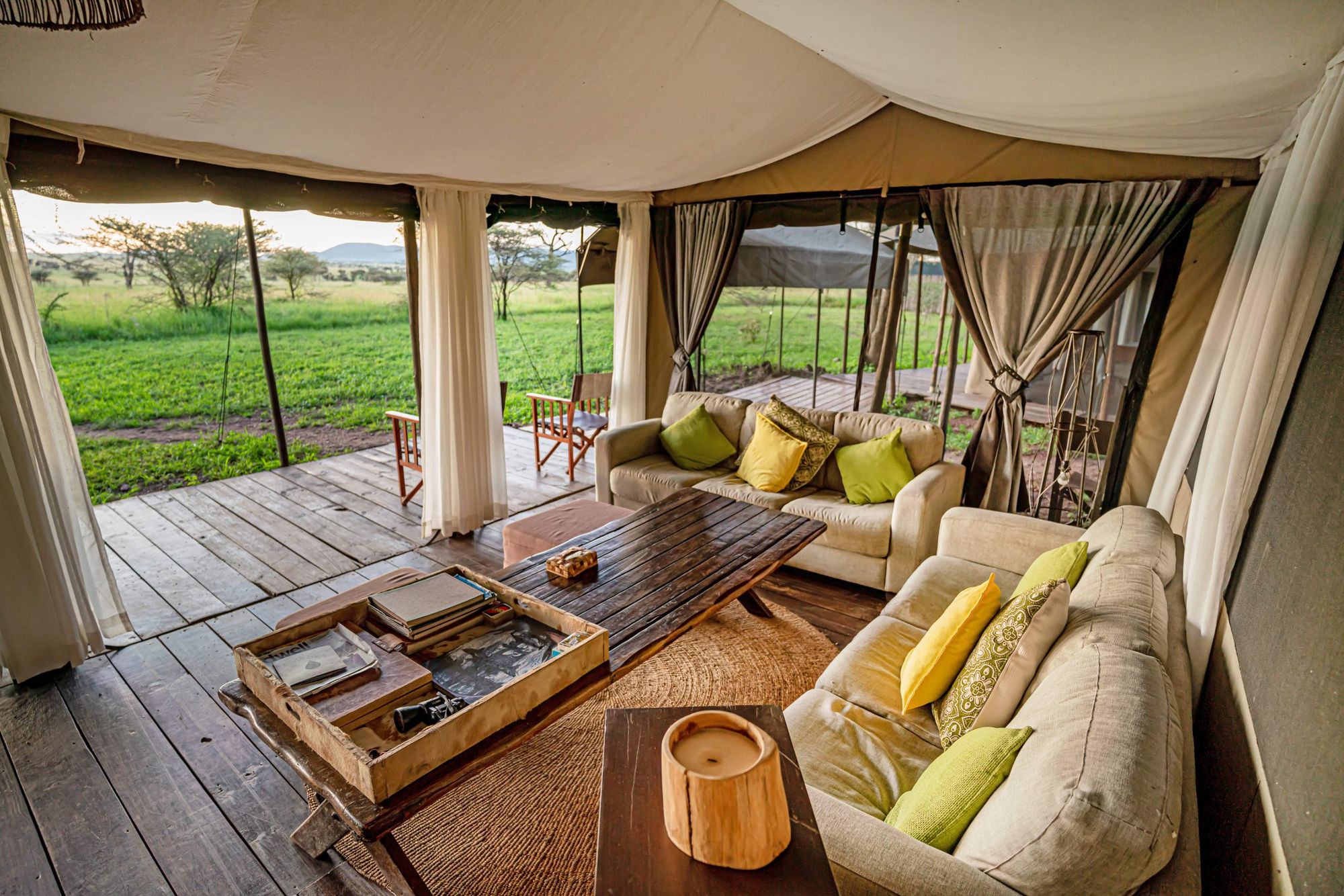
The open area, which features deep, soft chairs, allows you to relax, sit back and watch elephants graze among the migrating zebra herds, next to equally-huge migrating wildebeest herds, next to giraffe. The giraffe tend to just wander around the neighborhood. They giraffe. They're good at it.
The luxury camp itself, centered with a generous bar (your libations are included) and spreading like a gracious oasis, offers a lot of temptation to simply sit, gaze out over the plains and listen to the cacophony of birds and the barking of zebras.
We didn’t have time to be lazy, not on my first day back in heaven.
Welcome to the World.
I'd never been to this part of Tanzania, so everything had dew on it for me.
As we drove, Alladin pointed out the ancient kopjes, huge, free-standing stones surrounded by and covered with trees and dense bush. The big cats love to keep their young safe from predators here. One female lion was lazing in the shade at the top of the first one near the camp, where she could sleep and watch over the plains.
Slowly, I got my "Africa eyes" back. When I return to the bush it often takes me about an hour or so to remember how to spot animal life, the familiar shapes of the wildebeest or the antelope as opposed to free-standing termite mounds. Alladin is most patient, and we both laugh when I mistake a stump for a gazelle, or a giraffe for a tree.
In one day on the Serengeti I saw more wildlife in greater abundance than I have often seen in days or even weeks in other countries. Including five lions sleeping in a single tree, probably after a big meal.
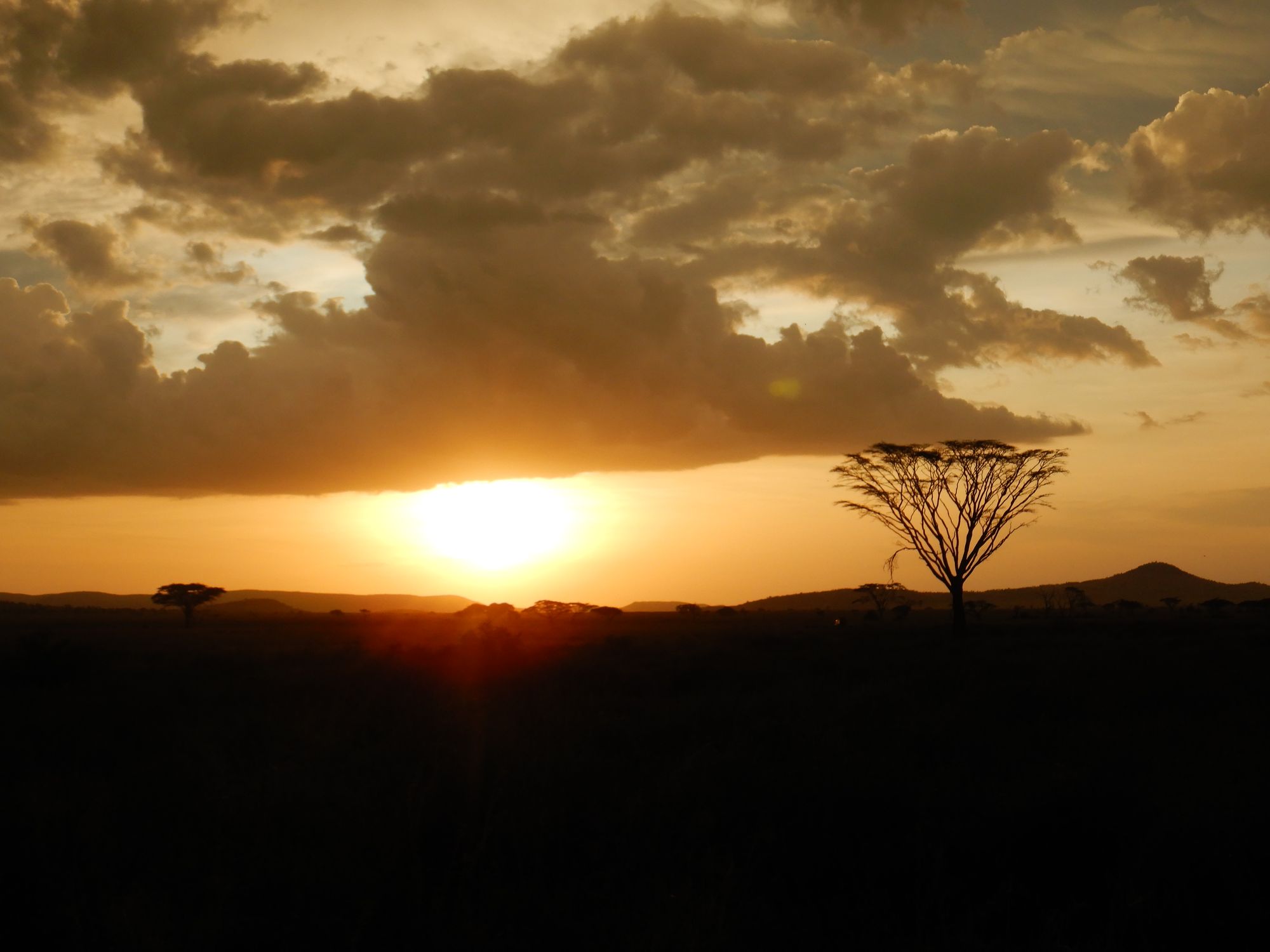
Then, after all that, the best show of the day, the African sunset. There are few sights more stunning than to position your vehicle facing west, the acacia in the near distance, as the world is painted ochre, fiery orange and red.
Every night, something lives on because something else dies.
However, for us, a return to Lemala Ewanjan camp means a cold drink of choice, often fine conversation with other excited travelers and a satisfying dinner. For me it was particularly wonderful, as the cook was kind enough to send a special meal to my tent as I was so tired I needed to go to bed early.

The chicken and vegetables arrived still steaming hot, on a red-hot plate, and cooked to perfection. That and a plate of tropical fruit for dessert made for a most satisfying first meal in the bush. Lemala's chefs aren't just good cooks; they know how to present food to make you feel as though you're in a fine restaurant. I liked my food so much I sought out the chef to thank him the next morning.
(That was, of course, after the bull elephant sauntered off, and after my Maasai guide walked me safely to breakfast, and after Swale and I wandered out back to find the big bulls grazing quietly on the hillside.)
For my one night at Ewanjan Camp, after that lovely dinner, I was lulled to sleep by the sound of rain, a blessed thing these days in Africa, and distant thunder. The symphony of the night, with all its mysteries fully intact, enveloped me inside my safe tent. I slept beyond all reaches of earthly concerns.
It's an object lesson in what too many of us are missing, and why such a trip is far more than just seeing extraordinary animals. It's a reminder of what we're missing in our busy city lives. Here, the night is punctuated by the siren song of the lions' roars, not police sirens.
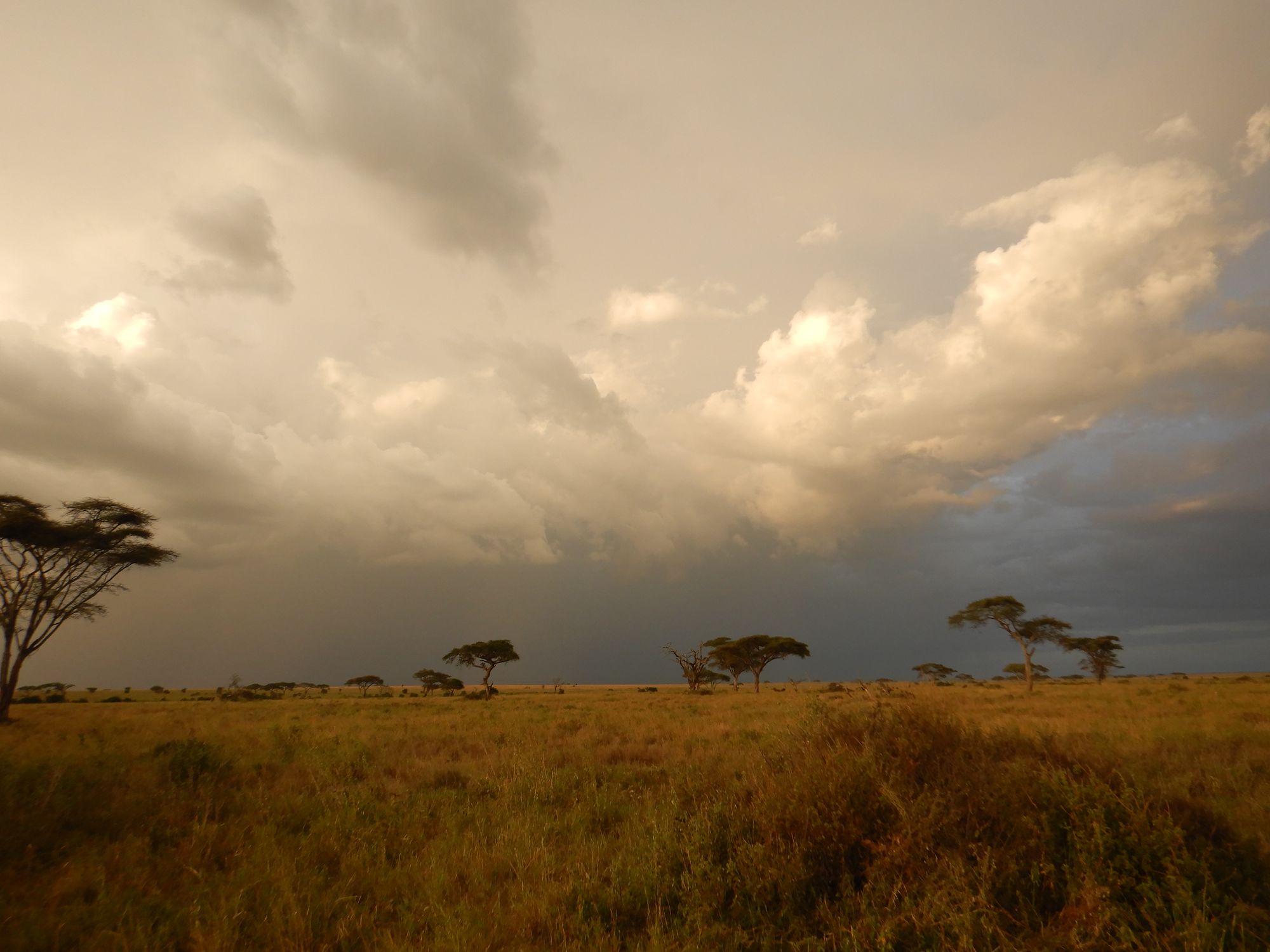
Welcome to the World.
It's uncanny how being in such a wild place can be so calming.
The vast Serengeti can be very intimidating, but not when you've got a good guide, a welcoming crew, and a beautifully-appointed camp to call home for a few days.
If there was a disappointment, it was that our time at Ewanjan was so brief. Alladin and I were both up early for a full breakfast. In the dining room I met a fellow traveler who promised to forward me some of her unbelievable photos. She did, and I will be using them in future articles. She was amazed to be there, too.
The ever-ebullient Juma (below, in the photo to the right of this writer) walked us out to the Toyota and Alladin got our group photo.
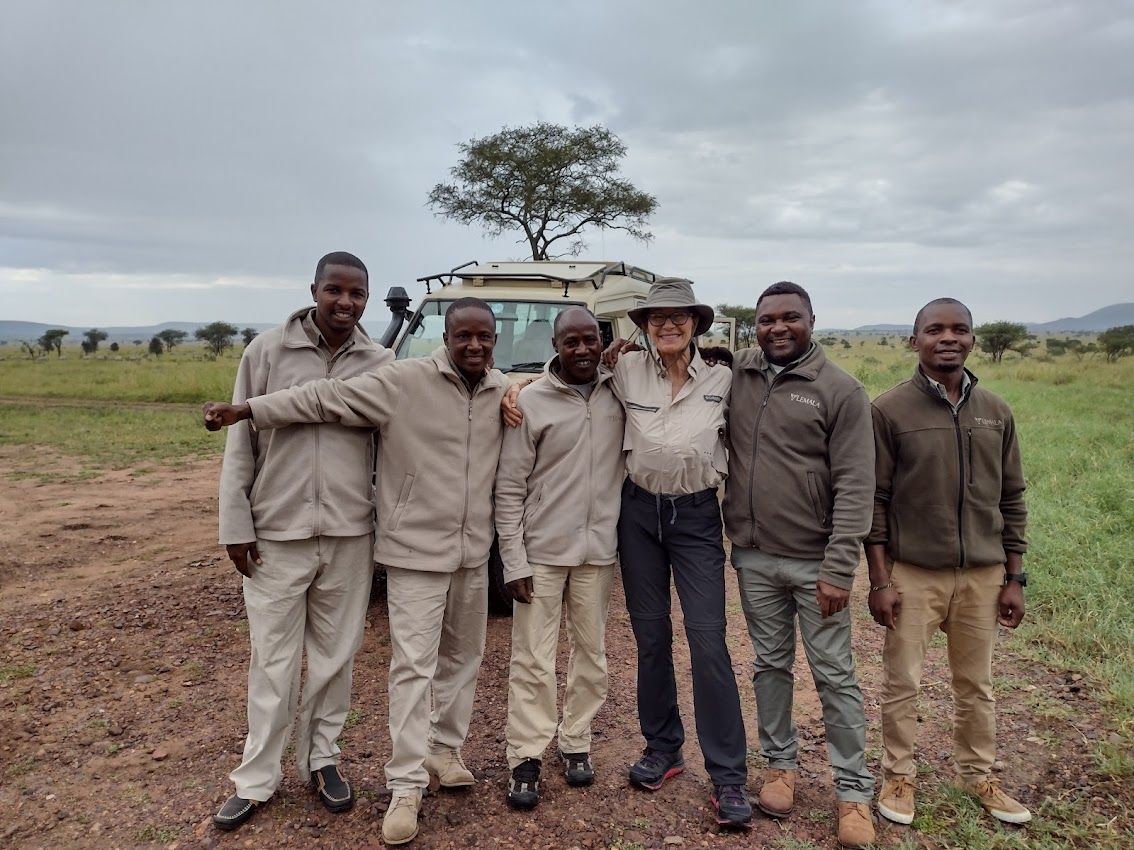
It might be time to visit The World. In doing so, you will be making a difference in The World. That is a fine thing, indeed.
Comments powered by Talkyard.